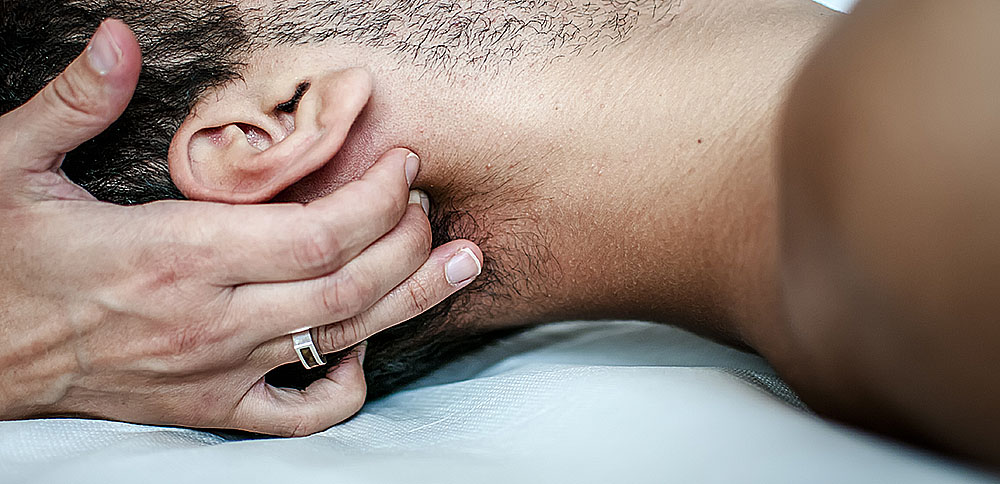Cancer patients, along with dealing with a plethora of other issues, have to go through episodes of pain and that can be a huge problem. However, there are ways to manage the somewhat chronic and unbearable pain. Here are some options suggested by pain management doctors.
Pain In Cancer Patients
Cancer and pain don’t necessarily go hand in hand, but if you’re suffering from a carcinogenic ailment that has resurfaced or is getting vigorous, then you might deal with pain as well. The pain cancer patients experience can be different in feeling and intensity. Some can feel lethargic, some will feel a dull sensation of pain, some will get pinches of pain here and there and others will feel a shooting pain that’s borderline unbearable.
Some causes of pain in cancer can include:
- Surgery
- The location of the tumor (if it presses on organs, muscles, and nerves)
- Radiotherapy
- Chemotherapy
Management Of Cancer Pain
The management of pain for cancer patients can be different. It depends on the cancer as well as the patient. If the patient has a really low pain threshold, then they’re going to need medication or something to alleviate the pain, while people with a sizable tolerance for pain can get away with it for the time being.
The Medicinal Route
Here are some mainstream ways by which cancer pain can be managed:
Anti-Inflammatory Drugs
All cancers and tumors are different. If the tumor is small or in the preliminary stages, then the pain can be managed by normal anti-inflammatory drugs and over-the-counter medications. These medicines can alleviate any internal swelling that could, very likely, be the source of the pain, to begin with.
Muscle Relaxers
This medication is for people who are going through rough radiation therapy. Usually, this mode of treatment is done after surgery, but that doesn’t mean that it is all that great.
Radiation therapy can cause the scar tissue to tighten and it can make the muscles tense up. This can cause a pinching pain or spasm near the affected area and sometimes, movement can be altered, depending on where the muscle is tightened. Muscle relaxers are a lifesaver for people because they alleviate the tension in the muscles and allow fluid movement.
Steroids
Steroids are nothing less than magic encapsulated in a tablet. There are several variations of steroids available, like oral medicine and even injections and they work almost instantly to get rid of any pain that’s being caused by the tumor.
Usually, steroids are administered after an X-ray or MRI is done, so that the affected area can be pinpointed. However, steroids fade away as fast as they take effect and it’s not recommended to get used to steroids, because the body can build resistance against it, down the road.
Opioids
Opioids are medicines derived from opium, nature’s painkiller. It is a robust medicine that can be used for pains of all severities. The most common one that’s used in cancer patients is morphine. Morphine also acts as a relaxer and sedative, so the patient can fall asleep as the pain medicine is doing its job.
Opioids can either be long-acting or short-acting. They can also be used in combination, especially if the cancer is aggressive and it’s causing a lot of pain.
These are also prescribed for some cases of back pain. However, they must only be taken if your back pain specialist Woodbridge considers them as a pain reliver in your case.
Specific Medications
This umbrella of medicine includes antidepressants and seizure medication. These are prescribed to people with brain cancers or tumors in the spinal cord. Anything that’s a direct link with the brain can be a sensitive issue and it needs to be dealt with, carefully. Antidepressants and anti-seizure drugs alleviate the swelling that’s causing pain, while also preventing major things from taking place.
People with brain tumors can suffer from mood swings as well and these targeted medicines will help to prevent seizures, abnormal swelling, and other things from making matters worse than they already are.
Chain Signal Blockers
These medications simply numb the nerve. The nervous system of the body sends brain signals about different sensations, feelings, and temperatures. These medications are injected around or into the nerve and it causes the receptors to stop working.
These medicines are administered when the cancer pain becomes intolerable and patients want long-term relief from the agonizing feeling. They do work flawlessly, but there are also a handful of side effects that accompany them, especially if the medicine is taken regularly. However, they are prescribed to the patients after proper counseling, and the odds are weighed out in meetings with your cancer specialist.
Non-Medicinal Route
If you’re looking for some non-medicinal ways to alleviate cancer pain, then here are some things that can work wonders:
Scrambler Therapy
Scrambler therapy is a very interesting way of derailing the brain and the signals the nerves send. Usually, cancer patients suffer from a lot of nerve damage, called neuropathy. This can be a direct effect of chemotherapy that damages the nerves.
Scrambler therapy replaces the damaged nerves with EKG signals that essentially scramble the brain and confuse it. This causes the pain signals to be replaced by non-pain signals and patients end up feeling no pain at all. This is a relatively new treatment and it’s non-invasive, so it’s worth a shot to discuss with your doctor if you want to give it a try.
Massages
This one is an oldie but a goodie. No one can pass up on a good old massage. It relieves the tension in your body naturally, it de-stresses you from the inside out and you feel invigorated after a nice, long session. It’s also a great way to pamper yourself, especially if the cancer treatments are weighing you down. So, whenever you feel achy and sore, then a massage can flip the situation around in a matter of minutes.
Acupuncture
Acupuncture, an ancient Chinese technique that focuses on the pressure points of your body can also be used to break free from the horrid clutches of pain, especially if it’s the doing of cancer. Acupuncture uses needles that are pierced into the body in various places.
This allows the pressure points of the body to be activated and it’s a holistic way of getting relief from pain. It works wonderfully for patients suffering from arthritis, cancer, and even patients who are surfacing from the harsh effects of chemotherapy or radiation therapy and always feel achy.
Meditation
Another way of flushing the tension out of your body is meditation. Meditation is a wonderful way of being mindful and focusing on breathing. This tricks the brain into forgetting about the pain and the sole focus is on the inhalation and exhalation. It is a great technique to build your pain tolerance and the results are pretty promising.
There’s no harm in trying out these holistic approaches to managing pain because they’re non-invasive and cause no harm, if not good, either.
Conclusion
These management tips can help to alleviate the discomfort that cancer patients feel on a day-to-day basis. However, they must be done with the advice of a doctor so visit a pain management clinic Woodbridge for relieving cancer pain.


